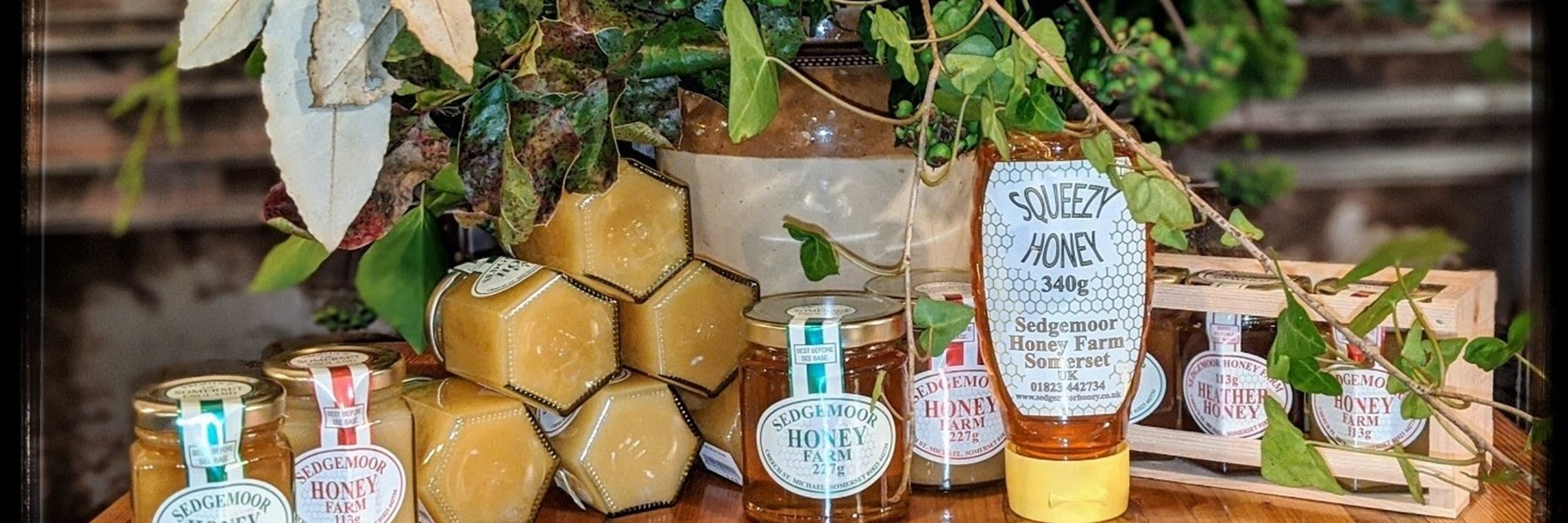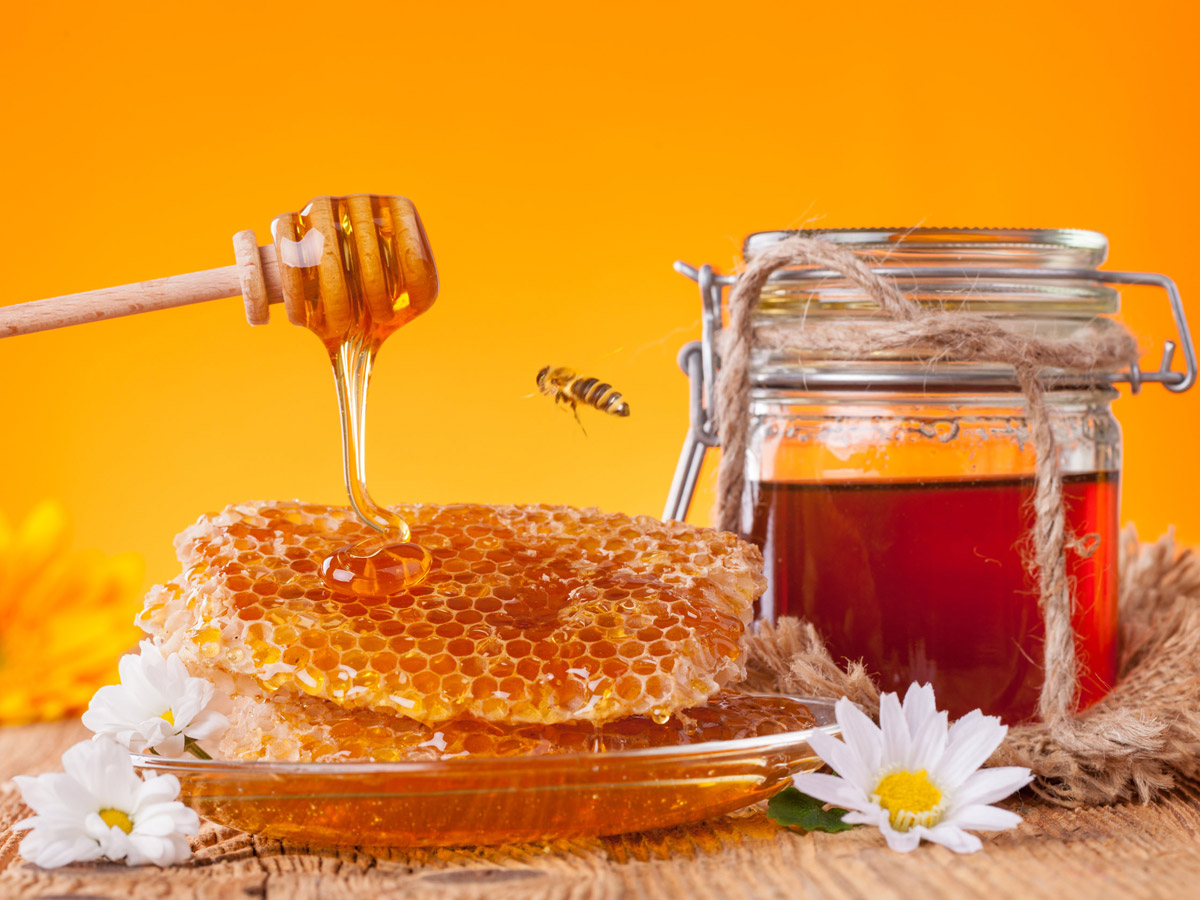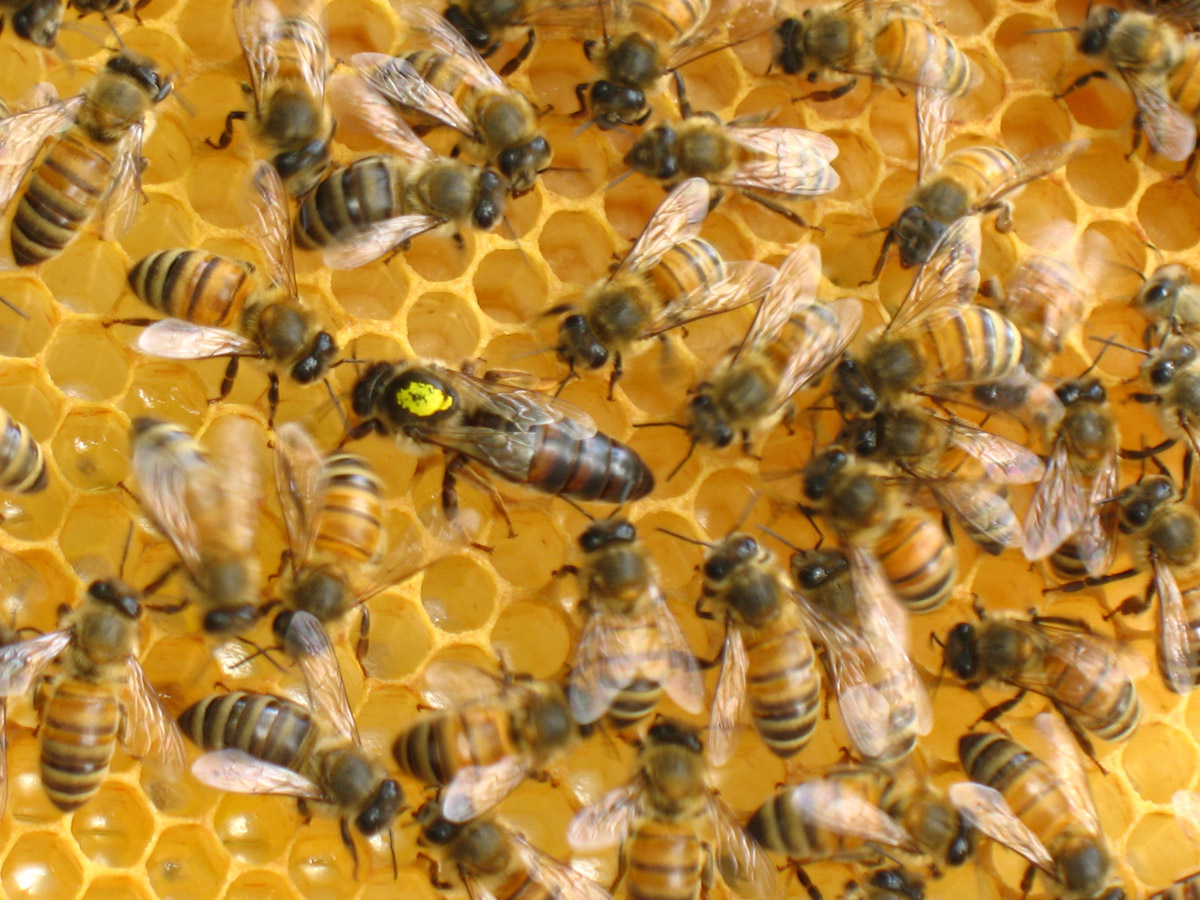Honey is a delicious, 100% natural sweet golden liquid produced by honeybees from nectar gathered from flowers. Sunshine helps flowers turn moisture from the soil into nectar, which honeybees collect as they pollinate the flowers.

Sedgemoor Honey Taunton
Sedgemoor Honey Taunton
Chris Harries started beekeeping back in the mid 1970’s. Little could he have then known that his fascination with 2 hives in the garden, would develop into the successful bee farm of today.
Still largely single-handed, Chris now runs 300 colonies of bees, divided between 20 apiaries. They forage for nectar in the fields and hedgerows of Somerset, including the Quantock and Blackdown hills, Sedgemoor and south Somerset.
During the summer months many hives are moved to take full advantage of the changing nectar flows, including the purple heather of Exmoor, with its distinctive aroma and flavour.


Nectar is composed of water, natural sugars [mainly sucrose, fructose and glucose], and other substances including salts, acids, enzymes, proteins and aromatic substances. The precise composition varies according to flower type, soil and weather conditions.
The conversion of nectar into honey is caused by chemical and physical changes resulting from honeybees adding a natural enzyme they produce [invertase], and reducing the moisture content by evaporation. The honey is then stored and sealed in a ‘honeycomb’ of beeswax.
Composition of an average honey
- 18% water
- 35% glucose
- 40% fructose
- 4% other sugars [eg: maltose, raffinose etc]
- 3% other substances:
- about 15 organic acids [eg: acetic, butyric, malic etc]
- about 12 elements [eg: potassium, calcium, sulphur etc]
- about 17 amino acids [eg: proline, glutamic, lysine etc]
- about 4 – 7 proteins [0.2%]
[note, protein value in heather honey is very high, about 1.8%]
The 3% ‘other substances’ are responsible for the variations in characteristics of different types of honey eg: colour, aroma, and taste. As a general guide, the darker the honey, the stronger the flavour; the lighter the honey, the more delicate the flavour.
Set or Runny?
Stored initially as a liquid [runny], all honey will set [granulate] in time. How quickly this occurs depends on the nectar source of the honey. More precisely it is down to the ratio of glucose to fructose in the honey – a high ratio leading to rapid granulation.
Get in touch
Three Bridges Farm, Bradford-on-Tone, Taunton TA4 1ER - Opening hours for the House of Cider. Monday - Saturday 9:00am - 5:00pm, Sundays 10:00am - 4:00pm. Please look at full opening times, under contacts, to see the café and restaurant food service times.

